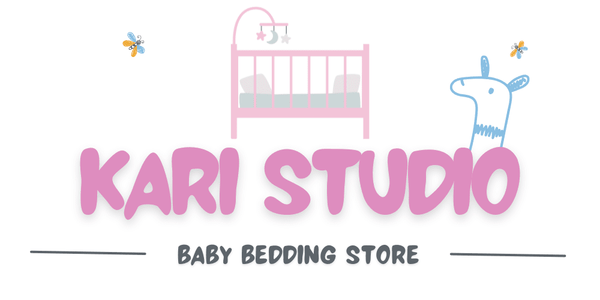Neugeborene wirken zwar friedlich und zerbrechlich, doch ihre ersten Wochen bringen oft gesundheitliche Probleme mit sich. Über 60 Prozent aller Neugeborenen leiden im ersten Monat an mindestens einer häufigen Erkrankung . Die meisten Eltern rechnen mit schlaflosen Nächten und Windelwechseln, ohne zu ahnen, dass selbst leichte Neugeborenenkrankheiten eine Kettenreaktion auslösen können, die Wachstum, Entwicklung und das Wohlbefinden der Familie beeinträchtigt.
Inhaltsverzeichnis
- Was sind häufige Neugeborenenkrankheiten?
- Warum sind häufige Neugeborenenkrankheiten wichtig?
- Wie sich häufige Neugeborenenkrankheiten auf Säuglinge auswirken
- Schlüsselkonzepte im Zusammenhang mit der Gesundheit von Neugeborenen
- Symptome erkennen und darauf reagieren
Kurze Zusammenfassung
| Wegbringen | Erläuterung |
|---|---|
| Überwachen Sie die Atmung des Neugeborenen genau | Achten Sie auf Anzeichen wie schnelle Atmung oder Keuchen, um Atemprobleme frühzeitig zu erkennen. |
| Verfolgen Sie Ess- und Stuhlgewohnheiten | Durch das Führen detaillierter Protokolle können Magen-Darm-Probleme schnell erkannt werden. |
| Achten Sie auf die richtige Hygiene | Regelmäßiges Reinigen und sorgfältiges Windelwechseln können Hautinfektionen bei Neugeborenen vorbeugen. |
| Kritische Symptome erkennen | Achten Sie auf Warnsignale wie hohes Fieber oder Lethargie, die sofortige ärztliche Hilfe erfordern. |
| Zusammenarbeit mit Gesundheitsdienstleistern | Erstellen Sie einen Kommunikationsplan mit Fachleuten für die wirksame Behandlung potenzieller Gesundheitsprobleme bei Säuglingen. |
Was sind häufige Neugeborenenkrankheiten?
Neugeborenenkrankheiten können komplex und für Eltern schwer zu verstehen sein. Obwohl die meisten Neugeborenenkrankheiten mild und behandelbar sind, erfordern sie sorgfältige Aufmerksamkeit und sofortige medizinische Intervention. Das Verständnis dieser Erkrankungen hilft Eltern, potenzielle Gesundheitsprobleme frühzeitig zu erkennen und die entsprechende Behandlung einzuholen.
Atemwegserkrankungen bei Neugeborenen
Atemwegserkrankungen gehören zu den häufigsten Erkrankungen bei Neugeborenen. Neugeborene haben empfindliche Atemwege, die anfällig für verschiedene Infektionen und Erkrankungen sein können. Erfahren Sie mehr über den Gesundheitsschutz von Säuglingen , um Eltern auf mögliche gesundheitliche Herausforderungen vorzubereiten.
Zu den wichtigsten Atemwegserkrankungen gehören:
- Respiratorisches Synzytialvirus (RSV)
- Bronchiolitis
- Lungenentzündung bei Neugeborenen
Diese Erkrankungen äußern sich häufig durch Symptome wie schnelle Atmung, verstopfte Nase und gelegentliches Keuchen. Eltern sollten die Atmung ihres Kindes beobachten und bei anhaltenden ungewöhnlichen Symptomen einen Kinderarzt aufsuchen.
Magen-Darm- und Verdauungsprobleme
Verdauungsprobleme sind eine weitere häufige Kategorie von Neugeborenenerkrankungen. Neugeborene erleben häufig Veränderungen im Verdauungssystem, die zu verschiedenen gesundheitlichen Komplikationen führen können. Laut Stanford Children's Health können diese Beschwerden von leichten Beschwerden bis hin zu ernsteren Infektionen reichen.
Zu den häufigsten Magen-Darm-Problemen gehören:
- Kolik
- Rückfluss
- Fütterungsschwierigkeiten
- Darminfektionen
Während die meisten Verdauungsprobleme vorübergehend sind, erfordern anhaltende Symptome eine professionelle medizinische Untersuchung. Eltern sollten Fütterungsgewohnheiten, Stuhlgang und alle Anzeichen von Unwohlsein beobachten, um dem Arzt eine genaue Diagnose möglicher Probleme zu ermöglichen.
![]()
Haut- und Infektionsrisiken
Neugeborene haben ein noch nicht ausgereiftes Immunsystem, was sie anfällig für verschiedene Hauterkrankungen und Infektionen macht. Richtige Hygiene und sorgfältige Überwachung sind entscheidend, um diese gesundheitlichen Probleme zu verhindern und zu bewältigen. Infektionen können sich bei Neugeborenen schnell ausbreiten und erfordern sofortige ärztliche Hilfe.
Zu den typischen Haut- und Infektionsproblemen zählen:
- Windelausschlag
- Soor
- Bindehautentzündung
- Leichte bakterielle Infektionen
Regelmäßige pädiatrische Kontrolluntersuchungen, die Einhaltung der Hygienevorschriften und die Verwendung geeigneter Säuglingspflegeprodukte können das Risiko dieser häufigen Neugeborenenerkrankungen erheblich verringern.
Nachfolgend finden Sie eine Tabelle mit einer Zusammenfassung der häufigsten Kategorien von Neugeborenenkrankheiten, die im Artikel erwähnt werden, mit den wichtigsten Erkrankungen und Hauptsymptomen für jede Kategorie.
| Kategorie | Wichtige Bedingungen | Häufige Symptome |
|---|---|---|
| Atemwegserkrankungen | Respiratorisches Synzytialvirus (RSV), Bronchiolitis, Neugeborenenpneumonie | Schnelle Atmung, verstopfte Nase, Keuchen |
| Magen-Darm-Probleme | Koliken, Reflux, Fütterungsschwierigkeiten, Darminfektionen | Schmerzhaftes Weinen, Erbrechen, Veränderungen bei der Nahrungsaufnahme |
| Haut- und Infektionsrisiken | Windelausschlag, Soor, Bindehautentzündung, leichte bakterielle Infektionen | Rötung, Reizung, Ausfluss |
Warum sind häufige Neugeborenenkrankheiten wichtig?
Erkrankungen von Neugeborenen sind mehr als nur vorübergehende gesundheitliche Probleme. Sie stellen kritische Momente dar, die die langfristige Gesundheit, Entwicklung und das allgemeine Wohlbefinden eines Säuglings erheblich beeinträchtigen können. Eltern müssen die tiefgreifenden Auswirkungen dieser frühen Erkrankungen verstehen, um eine angemessene Pflege und Unterstützung gewährleisten zu können.
Entwicklungs- und langfristige Gesundheitsrisiken
Häufige Neugeborenenerkrankungen sind nicht nur kurzfristige medizinische Ereignisse, sondern können den zukünftigen Gesundheitsverlauf eines Kindes beeinflussen. Unser umfassender Leitfaden zur Säuglingssicherheit unterstreicht die Bedeutung eines proaktiven Gesundheitsmanagements in diesen schwierigen ersten Monaten.
Zu den möglichen langfristigen Auswirkungen zählen:
- Entwicklungsverzögerungen
- Beeinträchtigte Funktion des Immunsystems
- Erhöhte Anfälligkeit für chronische Erkrankungen
- Mögliche neurologische Komplikationen
Wiederholte oder schwere Infektionen während der Neugeborenenphase können dauerhafte physiologische Veränderungen hervorrufen, die sich auf die zukünftige Gesundheit auswirken können. Um diese potenziellen Risiken zu minimieren, sind eine frühzeitige Erkennung und eine angemessene Behandlung entscheidend.
Entwicklung des Immunsystems
Neugeborene besitzen ein unreifes Immunsystem, das noch lernt, sich gegen verschiedene Krankheitserreger zu verteidigen. Laut Johns Hopkins Medicine sind Säuglinge in dieser Entwicklungsphase besonders anfällig für Infektionen und benötigen spezielle medizinische Betreuung.
Zu den wichtigsten Überlegungen zum Schutz des Immunsystems gehören:
- Passive Immunität durch mütterliche Antikörper
- Allmähliche Entwicklung unabhängiger Immunreaktionen
- Anfälligkeit für Umweltpathogene
- Entscheidende Rolle frühzeitiger Interventionen
Psychologische und emotionale Auswirkungen
Über die körperliche Gesundheit hinaus können häufige Erkrankungen von Neugeborenen die Familiendynamik und die psychische Gesundheit der Eltern erheblich beeinträchtigen. Der Stress, der mit der Betreuung eines kranken Säuglings einhergeht, kann zu Angstzuständen, Schlafstörungen und emotionaler Belastung führen.
Umfassende medizinische Betreuung und Aufklärung der Eltern spielen eine entscheidende Rolle bei:
- Verringerung der Ängste der Eltern
- Förderung wirksamer Pflegestrategien
- Aufbau von Vertrauen im Umgang mit gesundheitlichen Herausforderungen bei Säuglingen
- Aufbau einer starken Eltern-Kind-Bindung während medizinischer Episoden
Wenn Eltern die umfassenderen Auswirkungen von Neugeborenenerkrankungen verstehen, können sie diese Herausforderungen mit einer fundierten Perspektive, Mitgefühl und proaktiver medizinischer Betreuung angehen.
Wie sich häufige Neugeborenenkrankheiten auf Säuglinge auswirken
Neugeborenenerkrankungen stellen komplexe gesundheitliche Herausforderungen dar, die die physiologische Entwicklung und Entwicklung eines Säuglings erheblich beeinflussen können. Um diese Auswirkungen zu verstehen, bedarf es umfassender Einblicke in die Wechselwirkung verschiedener Erkrankungen mit den empfindlichen biologischen Systemen eines Säuglings.
Physiologischer Stress und Immunreaktion
Der Körper von Säuglingen reagiert dramatisch auf Krankheiten und ist erheblichem physiologischen Stress ausgesetzt, der normale Entwicklungsprozesse stören kann. Unser Leitfaden zur Säuglingssicherheit bietet wichtige Informationen zum Schutz gefährdeter Neugeborener bei medizinischen Herausforderungen.
Zu den wichtigsten physiologischen Auswirkungen gehören:
- Erhöhter Stoffwechselbedarf
- Erhöhter Energieverbrauch
- Gestörte Nährstoffaufnahme
- Beeinträchtigte zelluläre Reparaturmechanismen
Länger anhaltender physiologischer Stress kann kaskadierende Effekte auslösen, die das normale Wachstum und die Entwicklung eines Säuglings beeinträchtigen. Jede Krankheit stellt eine potenzielle Unterbrechung des empfindlichen Gleichgewichts der frühen menschlichen Entwicklung dar.
Neurologische und entwicklungsbezogene Folgen
Häufige Neugeborenenkrankheiten können die neurologische Entwicklung und die kognitiven Funktionen erheblich beeinflussen. Laut Johns Hopkins Medicine können wiederholte oder schwere Infektionen in den ersten Monaten dauerhafte neurologische Veränderungen verursachen.
Zu den möglichen Entwicklungsstörungen zählen:
- Reduzierte neuronale Konnektivität
- Mögliche Verzögerungen bei der kognitiven Verarbeitung
- Veränderte Gehirnstruktur und -funktion
- Beeinträchtigte Neuroplastizität
Das Gehirn von Säuglingen ist in den ersten Monaten unglaublich plastisch und gleichzeitig anfällig und anpassungsfähig. Frühzeitige medizinische Eingriffe können potenzielle langfristige neurologische Folgen abmildern.
Psychische und emotionale Verletzlichkeit
Über die körperlichen Erscheinungen hinaus können häufige Neugeborenenkrankheiten die psychische und emotionale Situation eines Säuglings stark beeinträchtigen. Länger anhaltende medizinische Herausforderungen können wichtige Bindungsprozesse und emotionale Regulationsmechanismen stören.
Zu den emotionalen und psychologischen Auswirkungen gehören:
- Erhöhte Stresshormonproduktion
- Mögliche Bindungsstörungen
- Veränderte soziale Interaktionsmuster
- Reduzierte emotionale Reaktionsfähigkeit
Gesundheitsexperten betonen die Bedeutung einer ganzheitlichen Betreuung, die sowohl medizinische Behandlung als auch emotionale Unterstützung bei Erkrankungen des Säuglings umfasst. Eltern und Betreuer spielen eine entscheidende Rolle bei der Aufrechterhaltung der psychischen Stabilität bei der Bewältigung medizinischer Herausforderungen.
Diese Tabelle skizziert die physiologischen, neurologischen und emotionalen Auswirkungen häufiger Neugeborenenerkrankungen und hebt die im Artikel beschriebenen potenziellen Auswirkungen hervor.
| Wirkungsbereich | Mögliche Auswirkungen |
|---|---|
| Physiologische | Erhöhter Stoffwechselbedarf, erhöhter Energieverbrauch, gestörte Ernährung, beeinträchtigte Zellreparatur |
| Neurologische | Reduzierte neuronale Konnektivität, kognitive Verzögerungen, veränderte Gehirnentwicklung, beeinträchtigte Neuroplastizität |
| Emotional | Erhöhte Stresshormone, Bindungsstörungen, verändertes Sozialverhalten, verringerte emotionale Reaktionsfähigkeit |
Schlüsselkonzepte im Zusammenhang mit der Gesundheit von Neugeborenen
Die Gesundheit von Neugeborenen umfasst ein komplexes Geflecht physiologischer, umweltbedingter und medizinischer Aspekte, die ein umfassendes Verständnis erfordern. Eltern und Betreuer müssen sich ein differenziertes Wissen aneignen, um ihre Säuglinge in diesen kritischen frühen Entwicklungsphasen wirksam zu schützen und zu fördern.
Grundlagen des Immunsystems
Das Immunsystem von Neugeborenen ist ein komplexer, sich entwickelnder biologischer Mechanismus, der sich deutlich von der Immunreaktion Erwachsener unterscheidet. Entdecken Sie unseren umfassenden Leitfaden zu Lösungen für die Säuglingssicherheit, um die komplexen Schutzmechanismen rund um die Säuglingsgesundheit besser zu verstehen.
Zu den wichtigsten Merkmalen des Immunsystems gehören:
- Passive Immunität durch mütterliche Antikörper
- Begrenzte unabhängige Produktion von Immunzellen
- Hohe Anfälligkeit gegenüber Umweltpathogenen
- Schnelle adaptive Lernprozesse
Die immunologische Entwicklung erfolgt durch komplexe Wechselwirkungen zwischen vererbten genetischen Faktoren und Umwelteinflüssen. Dieser dynamische Prozess bestimmt die langfristige Immunkompetenz und Widerstandsfähigkeit eines Säuglings.
Physiologische Verletzlichkeit und Anpassung
Neugeborene besitzen einzigartige physiologische Merkmale, die sie von älteren Kindern und Erwachsenen unterscheiden. Laut den Centers for Disease Control and Prevention erfordern diese besonderen Merkmale spezielle medizinische Kenntnisse und Interventionsstrategien.
Wichtige physiologische Überlegungen umfassen:
- Unreife Organsystemfunktionalität
- Schnelle Stoffwechsel- und Wachstumsprozesse
- Begrenzte Wärmeregulierungsmöglichkeiten
- Erhöhte sensorische Sensibilität
Die physiologische Anpassung stellt einen kontinuierlichen Prozess dar, bei dem der Körper eines Säuglings lernt, mit der äußeren Umgebung zu interagieren und dabei immer ausgefeiltere Regulierungsmechanismen entwickelt.
Ganzheitliches Gesundheitsmonitoring
Eine umfassende Gesundheitsbeurteilung von Neugeborenen geht über traditionelle medizinische Untersuchungen hinaus und umfasst multidimensionale Ansätze, die physische, neurologische und psychologische Aspekte berücksichtigen. Medizinisches Fachpersonal betont die Bedeutung integrierter Überwachungsstrategien.
Zur ganzheitlichen Gesundheitsüberwachung gehören:
-
Regelmäßige pädiatrische Konsultationen
-
Umfassende Entwicklungsscreenings
-
Ernährungs- und Wachstumsbewertungen
-
Verhaltens- und kognitive Bewertungen
Ein erfolgreiches Gesundheitsmanagement erfordert die Zusammenarbeit von Eltern, Betreuern und medizinischem Fachpersonal, um unterstützende Ökosysteme zu schaffen, die die Entwicklung und das Wohlbefinden des Säuglings optimieren.
Symptome erkennen und darauf reagieren
Das Erkennen und angemessene Reagieren auf Krankheitssymptome bei Neugeborenen erfordert genaue Beobachtung, medizinisches Wissen und schnelles Handeln. Eltern müssen ein umfassendes Verständnis für mögliche Gesundheitssignale entwickeln, die auf zugrunde liegende Erkrankungen hinweisen können, die professionelles Eingreifen erfordern.
Kritisches Symptom-Erkennen
Die Identifizierung von Symptomen stellt die erste Verteidigungslinie bei der Bewältigung gesundheitlicher Probleme bei Neugeborenen dar. Unsere umfassenden Ressourcen zur Säuglingssicherheit bieten wichtige Erkenntnisse für die effektive Überwachung des Wohlbefindens von Säuglingen.
Zu den signifikanten Symptomen, die sofortige Aufmerksamkeit erfordern, gehören:
- Anhaltend hohes Fieber
- Ungewöhnliche Atemmuster
- Signifikante Veränderungen im Fressverhalten
- Extreme Lethargie oder Reizbarkeit
- Dramatische Farbveränderungen der Haut oder Schleimhäute
Die Symptomverfolgung erfordert systematische Beobachtung und Dokumentation. Eltern sollten detaillierte Aufzeichnungen über Häufigkeit, Dauer und Intensität bestimmter Gesundheitsindikatoren führen, um eine genaue medizinische Beurteilung zu ermöglichen.
Medizinische Reaktionsstrategien
Um möglichen gesundheitlichen Komplikationen vorzubeugen, ist es wichtig zu wissen, wann und wie auf Symptome bei Neugeborenen reagiert werden muss. Laut der American Academy of Pediatrics ist professionelle medizinische Beratung bei der Bewältigung gesundheitlicher Probleme bei Säuglingen nach wie vor unerlässlich.
Zu den wichtigsten Überlegungen für die Reaktion gehören:
- Festlegung grundlegender Gesundheitsmessungen
- Erstellen eines Kommunikationsprotokolls mit Gesundheitsdienstleistern
- Notfallwarnzeichen verstehen
- Entwicklung eines strukturierten medizinischen Reaktionsplans
Zur proaktiven medizinischen Kommunikation gehört die Aufbereitung umfassender Symptominformationen, einschließlich präziser Beobachtungen und potenzieller Auslöser. Dieser Ansatz ermöglicht es dem medizinischen Fachpersonal, präzisere diagnostische Einschätzungen vorzunehmen.
Professionelle medizinische Beurteilung
Während die Beobachtung der Eltern wichtige erste Erkenntnisse liefert, ist die professionelle medizinische Untersuchung nach wie vor die zuverlässigste Methode zur Diagnose und Behandlung von Neugeborenenerkrankungen. Gesundheitsdienstleister verfügen über das nötige Fachwissen und die notwendigen Diagnoseinstrumente für eine umfassende Gesundheitsbeurteilung.
Zu den Elementen einer professionellen medizinischen Beurteilung gehören:
- Umfassende körperliche Untersuchungen
- Detaillierte Anamnese
- Spezialisierte diagnostische Tests
- Gezielte Behandlungsplanung
Ein erfolgreiches Gesundheitsmanagement für Neugeborene erfordert einen kooperativen Ansatz zwischen Eltern und medizinischem Fachpersonal, der auf offener Kommunikation, raschem Handeln und evidenzbasierten medizinischen Eingriffen beruht.

Schützen Sie Ihr Neugeborenes mit bewährten Lösungen für das Kinderzimmer vor alltäglichen Gesundheitsrisiken
Bei der Pflege eines Neugeborenen können unerwartete Probleme wie Atemwegserkrankungen, Hautinfektionen und Schlafstörungen auftreten, die Eltern verunsichern und überfordern. Wie in unserem Artikel hervorgehoben, sind das empfindliche Immunsystem und das Bedürfnis eines Säuglings nach einer sicheren Umgebung entscheidend für jede Entscheidung. Die Schaffung eines gesunden Schlafplatzes ist eine Möglichkeit, häufigen Neugeborenenkrankheiten vorzubeugen. Deshalb schützen unsere geflochtenen Bettumrandungen Ihr Baby vor Stößen und Zugluft und sorgen gleichzeitig für eine einfache Reinigung und optimale Luftzirkulation.

Die Wahl der richtigen Babybettwäsche ist mehr als nur eine Frage des Stils. Es geht um Sicherheit, Komfort und mehr Seelenfrieden. Entdecken Sie die gesamte Kollektion von Kari Studio und entdecken Sie moderne Babyausstattung, die Ihnen hilft, in den empfindlichsten Monaten Ihres Babys eine sichere Schlafumgebung zu schaffen. Geben Sie Ihrem Neugeborenen zusätzlichen Schutz und bestellen Sie noch heute Ihr Babybett-Set für mehr Gesundheit und Komfort.
Häufig gestellte Fragen
Welche Atemwegserkrankungen treten bei Neugeborenen am häufigsten auf?
Zu den häufigsten Atemwegserkrankungen zählen das Respiratorische Synzytial-Virus (RSV), Bronchiolitis und Lungenentzündung. Symptome können schnelle Atmung, verstopfte Nase oder Keuchen sein. Eltern sollten diese Symptome beobachten und bei Auftreten einen Kinderarzt aufsuchen.
Wie erkenne ich Magen-Darm-Probleme bei meinem Neugeborenen?
Zu den häufigsten Magen-Darm-Problemen zählen Koliken, Reflux, Schwierigkeiten beim Füttern und Darminfektionen. Anhaltende Symptome wie schmerzhaftes Weinen, Erbrechen oder Veränderungen des Stuhlgangs sollten eine ärztliche Untersuchung erforderlich machen.
Auf welche Hautprobleme sollte ich bei meinem Neugeborenen achten?
Bei Neugeborenen können Hauterkrankungen wie Windelausschlag, Soor und Bindehautentzündung auftreten. Um diese Erkrankungen wirksam zu behandeln, ist es wichtig, die Haut sauber zu halten und auf Rötungen, Reizungen oder Ausfluss zu achten.
Wie können häufige Neugeborenenkrankheiten die langfristige Entwicklung beeinträchtigen?
Häufige Neugeborenenkrankheiten können die neurologische Entwicklung, die Funktion des Immunsystems und die allgemeine emotionale Gesundheit beeinträchtigen. Früherkennung und Behandlung sind entscheidend, um mögliche langfristige Auswirkungen auf die Gesundheit eines Kindes zu mildern.
Empfohlen
- Was Sie bei der Auswahl eines Geschenks für Neugeborene vermeiden sollten: Sicherheit und Zweckmäßigkeit – KariStudio
- Sicherheit von Kinderbettmatratzen für Ihr Baby verstehen – KariStudio
- Sicherheit von Kinderbetthimmeln für Kleinkinder verstehen – KariStudio
- Saisonale Geschenkideen für Neugeborene: Sommer- vs. Winterbabys – KariStudio

